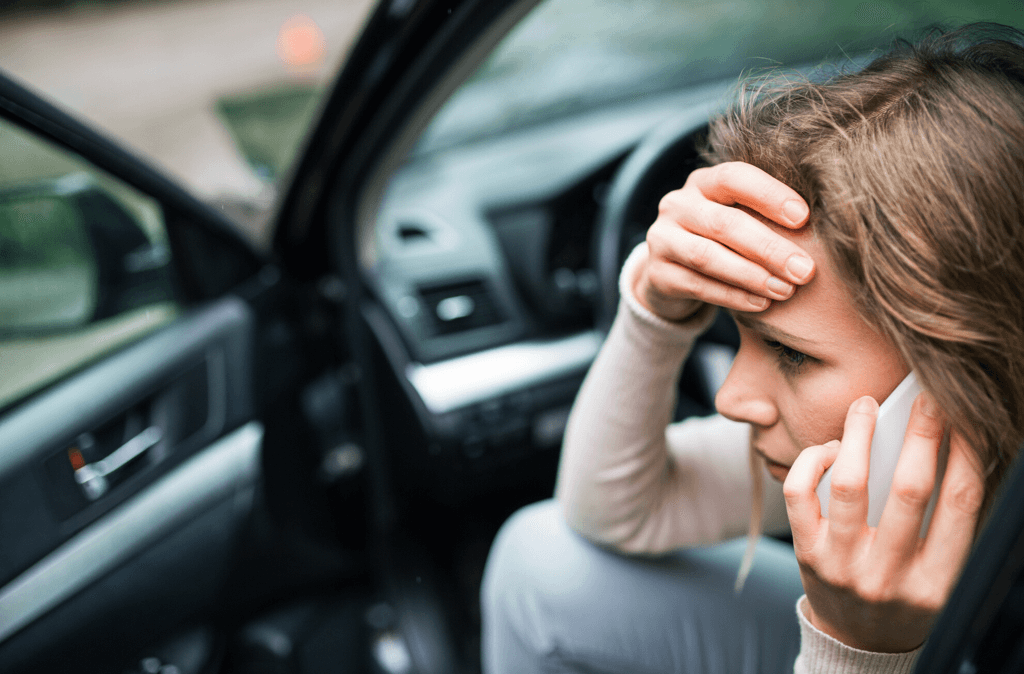Over 2 million people a year in the United States are injured in car accidents. Being involved in a car crash is scary and confusing, and can leave you with both major and minor injuries.
Many people neglect to think about what they need to do when the chaos subsides and they’re left on the road with an injury or a damaged car. Understanding what to do after a car accident is crucial for your safety in the immediate aftermath.

More than that, though, it’s important to know what you need to do when it comes to insurance, legal action, medical treatment, and vehicle repairs.
Here is your ultimate guide to the steps you need to take after a car accident.
Move to a Safe Location
After a car accident, you need to move your vehicle to a secure spot if it is safe to do so.
Move your car to the side of the road, a nearby parking lot, or any other safe area away from oncoming traffic. This will help to keep both yourself and your car out of harm’s way while you wait for help.
Remember to activate your hazard lights to alert other drivers that your car is not operating properly while you’re moving it.
Contact Emergency Services
If they haven’t already been notified, then you need to call the emergency services and inform them about the incident.
Providing as many details as you can about the accident. Tell them the location, the number of vehicles involved, and any visible injuries. Emergency services will dispatch the necessary personnel, such as police officers, paramedics, or firefighters, to the scene.
They will assess the situation, provide medical assistance, and ensure the safety of everyone involved. It is important to stay on the line and follow any instructions given by the dispatcher until help arrives.
Exchange Information
The vast majority of car accidents will involve other parties. You need to make sure and exchange information with them for insurance purposes.
Start by obtaining their full names, contact numbers, and addresses. Additionally, collect their insurance details, including the name of the insurance company and policy number.
If there are any witnesses, gather their contact information as well. Remember to remain calm and respectful during the interaction, focusing on obtaining accurate and complete information.
Document the Scene
Take clear and comprehensive photographs of the vehicles involved, their positions, and any visible damages. Capture images of the surrounding area, road conditions, traffic signs, and relevant landmarks.
Be sure to note things like skid marks, debris, or other factors that may have contributed to the accident. You can also make written observations about the weather conditions, time of day, and any other relevant details.
Be thorough and ensure that all relevant aspects of the scene are documented accurately.
Notify Your Insurance Company
Nobody likes having to deal with insurance companies, but if you’ve just had an accident, then it’s something that you need to do.
The earlier you can start the claims process, the better. Contact your insurance provider as soon as you can and get the ball rolling. Give them accurate and detailed information about the accident.
Include things like:
- The date
- The time
- Number of vehicles involved
- The location
- Circumstances of the accident
- Circumstances preceding the accident
- Information of other parties involved
If you don’t notify your insurance company in a timely manner, then it’s going to result in complications to your claim and you may end up getting less compensation than you hoped for.
Keep a record of all communications with your insurance company, including names of representatives, dates, and any relevant reference numbers.
Cooperate With Authorities
Once the relevant emergency services have arrived on the scene, it’s important that you closely follow their instructions.
They are sure to ask you what happened. Provide them with accurate and truthful information about the accident.
Provide them with any requested documents, such as your driver’s license, registration, and proof of insurance. Cooperating with authorities helps ensure that an accurate and official report of the accident is generated. This report can be crucial for insurance claims, legal proceedings, and determining fault.
Take Note of Damages
If it is safe to do so, you should take some time to assess the damage to your vehicle. This will be helpful when you’re dealing with attorneys and insurance companies later on.
Take detailed notes or use your smartphone to capture photos or videos of the damage sustained. Start by examining both the exterior and interior of your car. Note any visible dents, scratches, or broken parts on the exterior, as well as any damage to windows, mirrors, or lights.
Inside the vehicle, document any deployed airbags, broken seats, or other interior damage. It is also crucial to record any pre-existing damage that may have been worsened by the accident. These detailed notes and visual evidence will serve as crucial documentation for insurance claims and potential legal proceedings. Remember to date and timestamp your documentation to establish the connection between the accident and the resulting damages.
If possible, consult a professional mechanic or body shop to assess the extent of the damages and provide an expert opinion. Taking thorough notes and documenting the damages will help ensure that you receive appropriate compensation for the necessary repairs or replacement of your vehicle.
Seek Medical Attention
If you think you’ve been injured in the accident, you need to seek immediate medical attention, even if you believe your injuries are minor or non-existent. Here’s why.
Hidden Injuries
Some injuries may not manifest symptoms immediately after the accident. Internal injuries, whiplash, and soft tissue damage can take hours or days to become apparent.
A medical professional can identify and treat these hidden injuries before they worsen.
Medical Documentation
If you’re going to be pursuing damages or an insurance claim, then you’re going to need medical documents.
When you go to the doctor, they will provide you with evidence of your visit and the clinical conclusions they came to regarding your injuries.
Prevent Long-Term Complications
Many minor injuries can quickly become more serious problems. Timely treatment can lead to better outcomes and a faster recovery.
Don’t ignore any niggling aches or pains as they could be signs of something that needs prompt treatment.
Emotional Well-being
A car accident can be traumatic, and seeking medical attention can provide emotional support. A healthcare professional can assess your mental well-being and recommend appropriate resources or therapy if needed.
Follow-up Care
A healthcare provider will establish a treatment plan and recommend any necessary follow-up care. Adhering to this plan ensures proper healing and reduces the risk of long-term complications.
Remember, some injuries may not be immediately noticeable, so it is important not to underestimate the impact of the accident on your well-being. Even if you feel fine, it is recommended to consult a healthcare professional for a thorough evaluation and peace of mind. Your health and well-being should be the top priority after a car accident.
Arrange Vehicle Repairs
Failing to address the damages in a timely manner may lead to further complications and potentially affect your insurance claim. Here are the steps to take in arranging vehicle repairs.
Your first job is to acquire some estimates from reputable auto repair shops. Reach out to multiple shops at once and compare their prices.
Once you’ve chosen a repair shop, be sure to stay in touch with them the whole time to receive updates on the progress.
After the repairs are completed, thoroughly inspect your vehicle to ensure that the work has been done to your satisfaction. Take the time to carefully examine the repaired areas, test drive the vehicle if necessary, and verify that it is in proper working condition.
By promptly arranging vehicle repairs and working with reputable repair shops, you can ensure that your vehicle is restored to its pre-accident condition. This will not only enhance your safety on the road but also help you move forward from the accident with peace of mind.
Consider Legal Options
Establishing fault can be tricky when you get into a car accident. Legal help is sometimes needed to make sure that you’re not being accused of being at fault when you’re not. It’s also helpful to get damages if you believe another party is solely to blame for the accident.
You can read the full article here to get an in-depth look at this, but for now we’ll go over it briefly.
One of the first things that an attorney will try to do is determine who’s liable for the accident. They will take time to review the evidence in detail. They will look through witness statements, police reports, and any available footage of the accident.
They will then help you to evaluate the full extent of your damages. This will not only include any immediate medical expenses but also things like lost wages, ongoing medical treatments, and the impact on quality of life.
Negotiating a settlement with insurance companies and the opposing party is often the next course of action. Your attorney will engage in these negotiations, advocating for your rights and ensuring that you are not taken advantage of during the process. They will work to secure a settlement that appropriately reflects the damages you have suffered.
In some cases, if a fair settlement cannot be reached, litigation may be necessary. Your attorney can guide you through the litigation process, including filing a lawsuit, gathering evidence, representing you in court, and presenting your case to a judge and/or jury.
It is important to be mindful of the statute of limitations, which sets a deadline for filing a legal claim. Your attorney will ensure that all necessary legal actions are taken within the prescribed timeframe, safeguarding your right to pursue compensation.
Throughout the process, your attorney will provide personalized legal strategies based on the unique circumstances of your case. They will explain the financial considerations, such as legal fees and potential contingency arrangements, ensuring you have a clear understanding of the costs involved.
Keep Track of Expenses
If you’re pursuing an insurance claim or seeking damages from another party, you need to keep a close eye on your expenses.
This includes:
- Medical bills
- Vehicle repair costs
- Rental car expenses
- Transportation costs
- Any other out-of-pocket expenses incurred as a result of the accident.
Maintaining a detailed record of these expenses will help you to accurately assess the financial impact of the accident and provide evidence for insurance claims or potential legal proceedings. Keep all receipts, invoices, and documentation organized in a safe place for easy reference and reimbursement purposes.
Take the Right Steps After a Car Accident
Nobody wants to be forced to deal with a car accident. They are scary and can lead to injuries and financial costs that everybody would rather not deal with. But, they are part of being on the road.
Your actions right after a car accident are vital. They will keep you safe while you wait for the authorities, and help you get legal help to make claims for damages and injuries after the accident.
Remember these tips if you ever find yourself in a car accident.
If you found this article helpful, you’ll be interested to know that we have more advice on what to do in the aftermath of a car accident on our website. We also have lots more automotive content.
Check out more articles like this under our Lifestyle section!



